
Dame Frances Helen Wilde is a New Zealand politician, and former Wellington Labour member of parliament, Minister of Tourism and Mayor of Wellington. She was the first woman to serve as Mayor of Wellington. She was chairperson of the Greater Wellington Regional Council from 2007 until 2015, and since 2019 she has chaired the board of the Museum of New Zealand Te Papa Tongarewa.
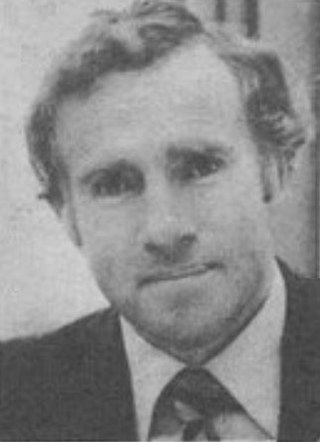
Kenneth Mark Comber was a New Zealand politician of the National Party, and an accountant.
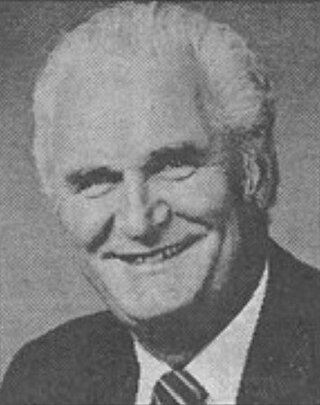
Sir James Belich was a New Zealand local politician. He was the mayor of Wellington from 1986 to 1992.
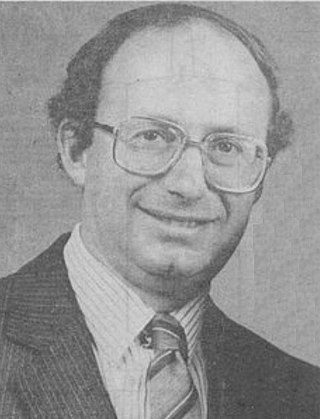
Ian William Lawrence was an Australian-born New Zealand lawyer, who served as the mayor of Wellington from 1983 to 1986.
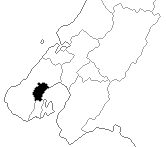
The 1992 Wellington Central by-election was a by-election held in the Wellington Central electorate during the 43rd New Zealand Parliament, on 12 December 1992. It was caused by the resignation of incumbent MP Fran Wilde after her election as mayor of Wellington and was won by Chris Laidlaw with a majority of 855.

The 2013 Wellington City mayoral election is part of the New Zealand local elections. On 12 October 2013, elections were held for the Mayor of Wellington plus other local government roles. Wade-Brown was re-elected.
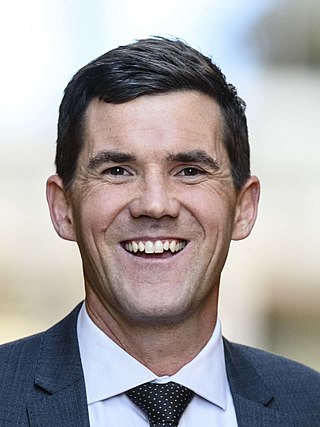
The 2016 Wellington City mayoral election was part of the New Zealand local elections and was held on 8 October to determine the next Mayor of Wellington. The incumbent was Celia Wade-Brown, who was first elected in the 2010 mayoral election. Wade-Brown did not seek re-election. Her title was pursued by her deputy, Justin Lester, councillors Jo Coughlan, Andy Foster, Helene Ritchie and Nicola Young, former mayor of Porirua City Nick Leggett and independent candidates Keith Johnson and Johnny Overton.
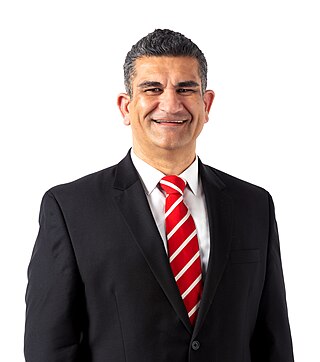
Tahere Paul Eagle is a New Zealand politician and member of the New Zealand House of Representatives for the Rongotai electorate. He was a Wellington City Councillor from 2010 to 2017 and was the first person of Māori descent to be Deputy Mayor of Wellington, but was defeated in a landslide when he sought the mayoralty as an independent candidate in 2022.
The Wellington Citizens' Association, was a right-leaning local body electoral ticket in Wellington, New Zealand. It was formed in 1911 by merging the selection process of council candidates of several civic interest groups and business lobby groups. Its main ambitions were to continue to control the Wellington City Council, reduce local spending and deny left-leaning Labour Party candidates being elected.

The 1977 Wellington City mayoral election was part of the New Zealand local elections held that same year. In 1977, election were held for the Mayor of Wellington plus other local government positions including eighteen city councillors. The polling was conducted using the standard first-past-the-post electoral method.

The 1950 Wellington City mayoral election was part of the New Zealand local elections held that same year. In 1950, elections were held for the Mayor of Wellington plus other local government positions including fifteen city councillors. The polling was conducted using the standard first-past-the-post electoral method.

The 1956 Wellington City mayoral election was part of the New Zealand local elections held that same year. In 1956, elections were held for the Mayor of Wellington plus other local government positions including fifteen city councillors. The polling was conducted using the standard first-past-the-post electoral method.

Helene Ruth Paula Ritchie is a former local body politician, registered psychologist and mediator, and a board member from Wellington, New Zealand. As Wellington's longest serving City Councillor of over 30 years, she led the Labour team to a majority position on the council. Later, she was the first female deputy mayor and chaired the Wellington Airport Authority and its successor for eight years.

The 1980 Wellington City mayoral election was part of the New Zealand local elections held that same year. In 1980, election were held for the Mayor of Wellington plus other local government positions including eighteen city councillors. The polling was conducted using the standard first-past-the-post electoral method.

The 1986 Wellington City mayoral election was part of the New Zealand local elections held that same year. In 1986, elections were held for the Mayor of Wellington plus other local government positions including twenty-one city councillors. The polling was conducted using the standard first-past-the-post electoral method.
The 1986 Wellington local elections were part of the 1986 New Zealand local elections, to elect members to sub-national councils and boards. The Wellington elections cover one regional council, eight territorial authority councils, three district health boards, and various local boards and licensing trusts. The polling was conducted using the standard first-past-the-post electoral method.

The 1989 Wellington City mayoral election was part of the New Zealand local elections held that same year. In 1989, elections were held for the Mayor of Wellington plus other local government positions including twenty-one city councillors. The polling was conducted using the standard first-past-the-post electoral method.
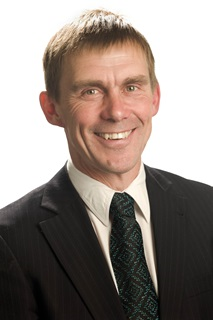
The 2019 Wellington City mayoral election was part of the New Zealand local elections and was be held on 12 October to determine who would serve as Mayor of Wellington for the next three-year term. It was won by Andy Foster, who unseated the incumbent Justin Lester by 62 votes.

Ruth Gotlieb was a local politician in Wellington, New Zealand, serving as a Wellington City Councillor from 1983 to 2001.
The 2022 Wellington local elections were held on 8 October 2022 as part of the wider 2022 New Zealand local elections to elect members to sub-national councils and boards. The Wellington elections cover one regional council, eight territorial authorities, and various community boards and licensing trusts.

















